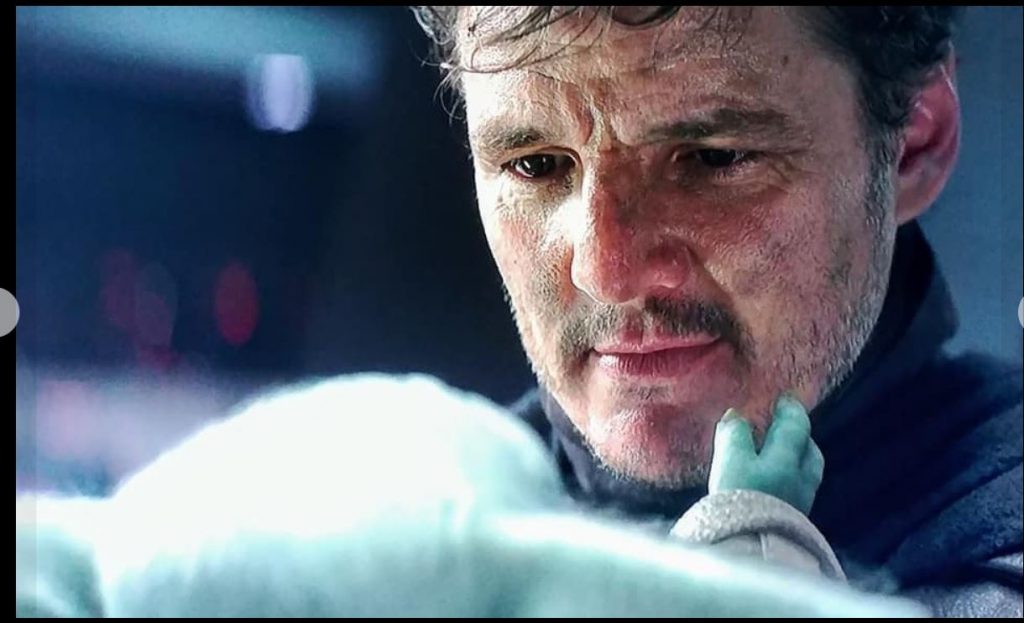By Ann Lloyd
They say love is the universal language. They say the same thing about music. But they also say, “money talks” — and that applies both here and now on Earth, and in a long time ago, in a galaxy far, far away.
Just ask Grogu, Din Djarin, and the other characters from the Disney+ streaming hit “The Mandalorian,” based in the “Star Wars” universe. They may not deal with money all the time, but they have to convert currency from Imperial credits to Calamari Flan, and they know the value of honor, protection, and preparedness.

Money can buy some of those things; others, not so much. But the lessons and wisdom dispensed in “The Mandalorian” — from the Force to the Way — can help you navigate your way through fiscal challenges on 20th-century Terra. Here’s how.
Appearances can be deceiving
Grogu looks a lot like Yoda, but he’s not (even though he quickly earned the nickname “Baby Yoda”). Yoda is a Jedi grandmaster; Grogu’s still a kid getting the hang of using the Force. Similarly, Mandalorians wear beskar armor and all live by the same code, but there’s still a different individual behind each mask.
It’s easy to get tripped up by appearances and fall into the trap of judging a book by its proverbial cover. This can create expectations that aren’t met — and disappointments — as a result. Not all deals are the same. Be sure you know who you’re dealing with in business, whether you’re hiring someone, considering a partnership, or signing a contract.
Read the fine print, whether you’re opening a retirement account, buying car insurance, or agreeing to work for someone. And just as important, know the person behind the contract so you can trust that they won’t steer you wrong.
The easy way isn’t always the best way
Mando attempts to reunite Grogu with his people in Season 2, but it turns out that finding them isn’t easy. That’s not always a bad thing. In fact, it may even be a sign you’re doing something right.
In the same way, it may take you a while to find financial security. It isn’t always a straight line from setting a goal to completing a mission. But that’s no reason to abandon the goal. Many objectives seem out of reach or a long way off at first (especially when they involve saving and sacrifice), but by taking the journey one step at a time, you’ll eventually get there — and learn a lot of worthwhile lessons along the way.
It’s smart to protect your nest egg
Eggs are a recurring theme in “The Mandalorian” episodes, which don’t always end well for the mama.
In one episode, a Frog Lady wants Mando to help her get a can of unfertilized eggs to her husband … not counting on Grogu’s fondness for eggs as a tasty treat. (They don’t need to be scrambled, poached, or over-easy, either.)
In another chapter, Mando and Grogu team up to steal a mudhorn egg, killing the enraged mudhorn mother in the process. Mudhorns, which are like wooly rhinos, lay just one egg at a time, which makes them a particularly valuable delicacy to the Jawas.
You only have one nest egg, too, and others likely covet it, whether they’re salespeople or scam artists. If you’re planning to invest or set up a new account, be sure you’re not dealing with an egg-loving Child who’ll chow down on yours at the first opportunity.
It pays to keep your armor on
Din Djarin wears a suit of beskar armor, or “iron skin,” which has a reputation for its effectiveness against sustaining damage in an attack. Imagine if he went into battle wearing shorts and a T-shirt! He wouldn’t last long — and neither will you if you aren’t wearing the right armor in your financial encounters.
Insurance can work a lot like a financial version of beskar armor, insulating you from sudden expenses that can threaten your financial security. It’s important to wear both your helmet and your body armor.
For example, you can protect your home with a combo of homeowner’s insurance and a home warranty. They’re actually two different things: One protects the structure of your home, while the other ensures that you won’t be blindsided by unexpected repair costs to your plumbing, electrical system, dishwasher, or other major appliances/systems.
Adapting is (a whole lot) better than failing
Mandalorians live by a strict code of honor. But not every rule or code applies to every situation, and sometimes you have to adapt in order to succeed. Even though Mando had spent many years living by the bounty hunter code, he was forced to make a difficult decision when he violated his contract with the Client to protect Grogu.
Your finances aren’t the same today as 20 years ago, and they won’t be the same in retirement. You should be nimble enough to adapt as new challenges and opportunities arise, but you don’t have to start from scratch. It’s more economical, for instance, to rent a dumpster and clear out a cluttered room than to build an addition from the ground up. Consider what you already have and where it can get you.
Din Djarin is no financial planner, but he knows good strategies when he sees them. You can apply many of those strategies to your finances. You won’t need someone like Grogu to help you out with the Force. With some common sense, attention to detail, protectiveness, and perseverance, you’ll have what you need to complete your mission.
Ann Lloyd is a newly enrolled MBA grad student. She’s getting her degree online and working as a marketing intern on the side. In her spare time, I’m hard at work on the Student Savings Guide, her blog about living a budget-conscious life. The guide caters to students and recent grads, but anyone can use these tips to get by.
